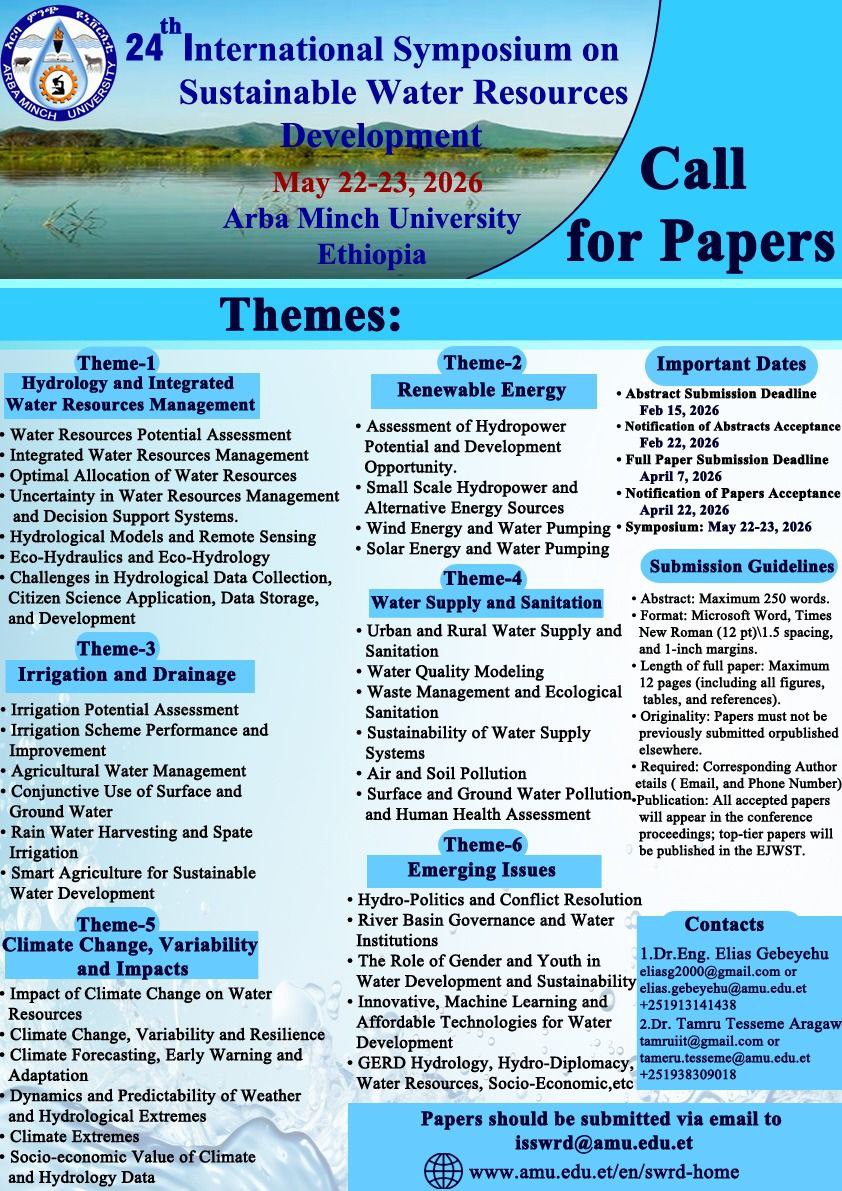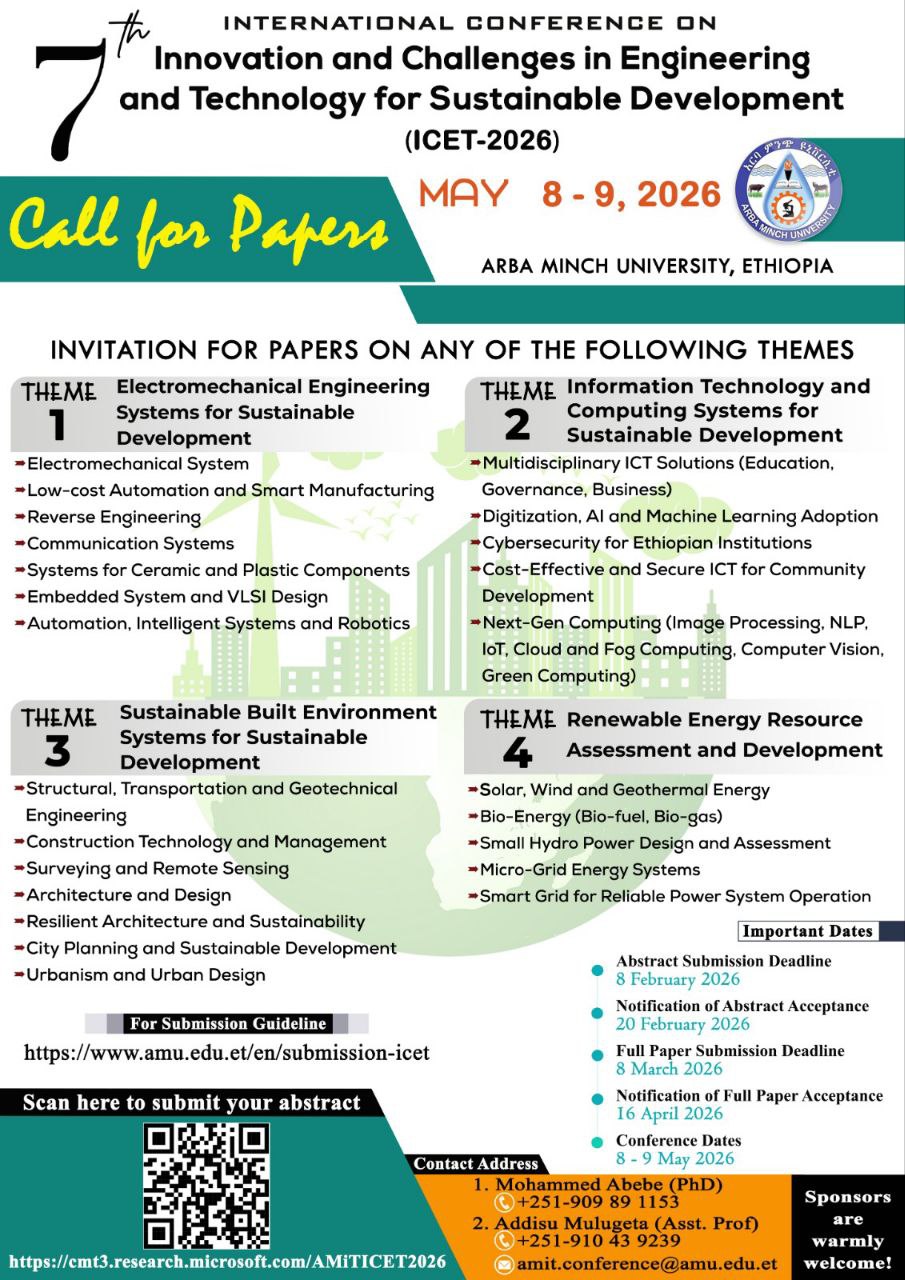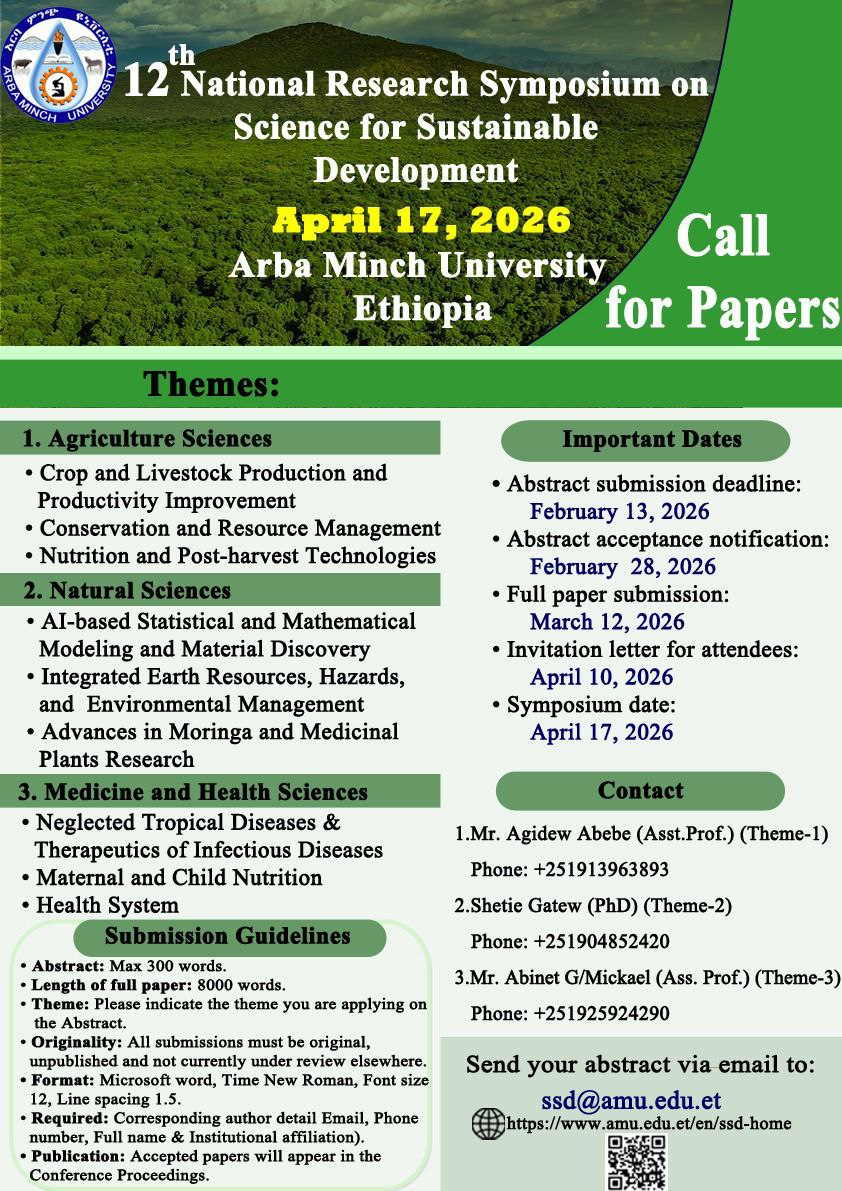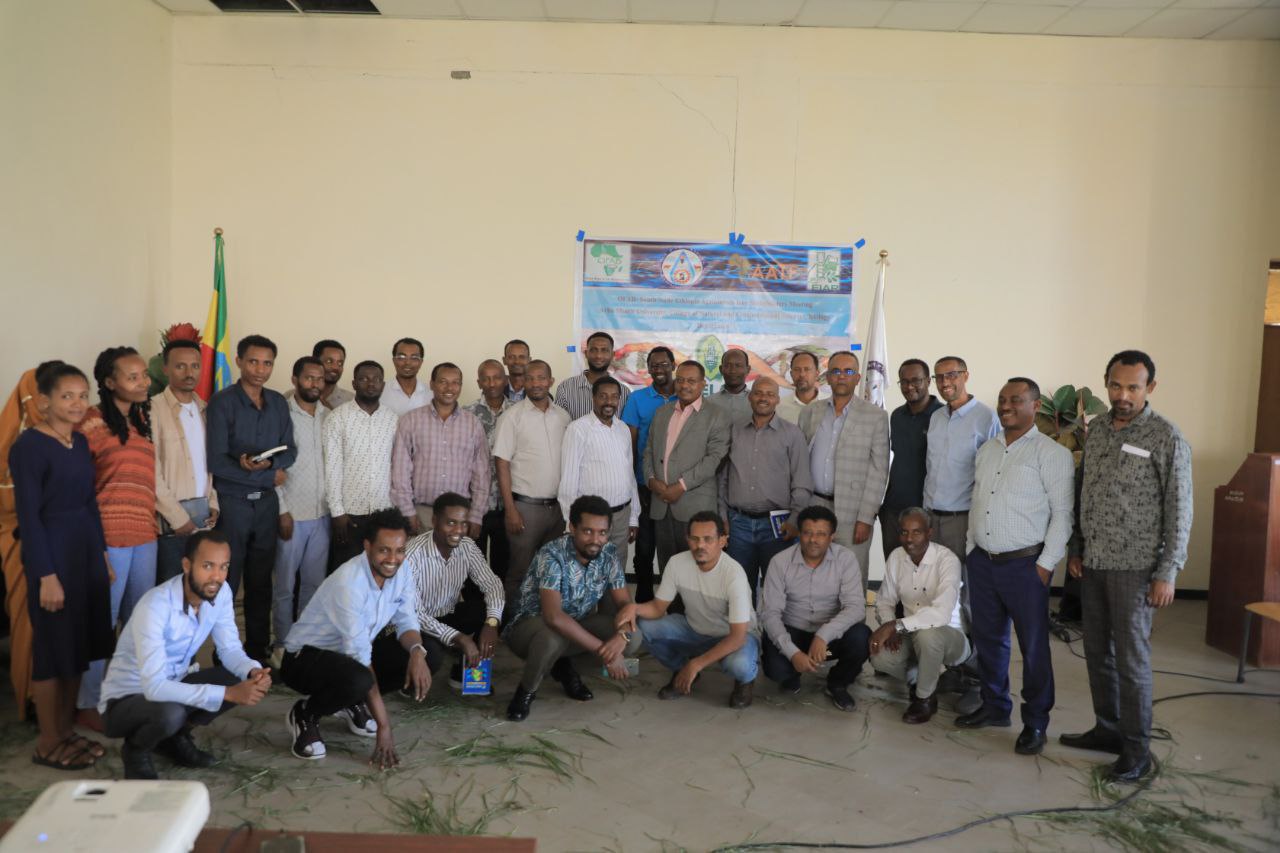The Open Forum on Agricultural Biotechnology (OFAB) South West Node held its 8th stakeholders meeting on the theme “OFAB: Bridging Scientists and Policymakers for Sustainable Development and Enhanced Food Security” at Arba Minch University (AMU), Abaya Campus on April 1, 2025. This pivotal event gathered a diverse array of participants including representatives from eight universities, six agricultural research centers, and various private farming entities, all united in their commitment to foster collaboration and dialogue between the scientific community and policymakers to tackle pressing agricultural challenges. Click here to see more photos.
Tewodros Birhanu (PhD), dean of the College of Natural and Computational Sciences at AMU, delivering the opening speech, appreciated AMU's commitment to research and education in the field of science and also informed the participants that the college offers a range of programs including biotechnology at all academic levels. According to Dr. Tewodros, the importance of open dialogue and collaboration among stakeholders is important to address the concerns and misconceptions surrounding biotechnology through transparency, education, and inclusive discussions.
Mr. Alemu Chemeda, a focal person for OFAB South Node Ethiopia, in his remarks, underscored that the initiative is dedicated to advancing agricultural biotechnology; when it is utilized responsibly, it is safe and can yield significant benefits for individuals, communities, and society at large. OFAB South West Node was established in 2016 following a Memorandum of Understanding between AMU and the Ethiopian Institute of Agricultural Research (EIAR), he recalled. The South West Node has a mission of promoting multi-stakeholder collaboration, advocating for science-based policies, and creating transformative opportunities in biotechnology to enhance food security in Ethiopia and to address climate change, resource depletion, and food insecurity Mr. Alemu remarked. While science provides the knowledge and tools necessary for sustainable solutions, effective policymaking is also essential to ensure these innovations reach the communities that need them most, he noted.
Samson Tezazu (PhD), head of the Biology Department at College of Natural and Computational Sciences, expressed his appreciations to the organizations and individuals who contributed to the event's success particularly EIAR and the OFAB secretariat. He reiterated the importance of collaboration and innovation to address the challenges facing the agricultural sector in Ethiopia and confirmed that together, we can bridge the gap between research and implementation ensuring that sustainable development is not just an aspiration but a reality.
The meeting featured three key presentations that provided valuable insights into the current state of agricultural biotechnology in Ethiopia. Tadesse Daba (PhD), director of Biotechnology Research at EIAR, presented on global and national updates in agricultural biotechnology emphasizing the importance of engaging policymakers and enhancing awareness whereas Tesfaye Disasa (PhD), TELA Maize project country coordinator, highlighted the progress of maize productivity in Ethiopia and the challenges posed by climate change and resource limitations. According to Dr. Tesfaye, TELA Maize initiative aims to develop drought-tolerant and insect-protected maize varieties and needs to make collaborations with farmers and government officials. Finally, Mr. Deresse Teshome addressed the impact of science communication in bridging the gap between research and implementation reinforcing the need for transparency and education in the adoption of agricultural biotechnology.
The workshop served as a critical platform for participants to yield well of dialogue discussions, collaboration, and action reinforcing commitment to on global and national updates in agricultural biotechnology, the progress of the TELA Maize project and the impact of science communication. The collective responsibility of all stakeholders to collaborate to ensure sustainable development is an agreed up on reality for generations to come.
For more Information Follow us on:-
Website - https://www.amu.edu.et/
Telegram - https://t.me/arbaminch_university
Facebook - https://www.facebook.com/ArbaMinchUniversityccd/
YouTube - https://www.youtube.com/channel/UCOO_nclhMo8M3r74OyPBlVA
Public and International Relations Executive





